Thieves Like Us (1974)
“I shoulda robbed people with my brain instead of a gun.”
|
Synopsis: |
|
Genres, Themes, Actors, and Directors:
Response to Peary’s Review: Parallels between Thieves Like Us and Arthur Penn’s Bonnie and Clyde (1967) are inevitable, given that both tell stories about “everyday” citizens during the Depression who are drawn to the glory and seemingly simple allure of bank robberies (indeed, no guards or policemen are ever shown nearby; Carradine and his team simply get away without a problem). To that end, Altman noticeably chooses “to treat the action sequences the same as the dialogue scenes, without suspense or exciting climaxes” — most likely because “Carradine himself doesn’t regard the robberies and shootouts as particularly interesting events in his life”; he’s much more concerned with making it back to his true love, “simple, scrawny” Keechie (Duvall), who possesses a strange appeal despite her odd looks (it’s easy to see why Carradine’s needy character falls for her). Duvall is excellent here, as are Carradine and the other male leads. Schuck — playing a psychopath — becomes increasingly terrifying as the film progresses, while Remsen is uniquely memorable as the oldest of the three thieves, who nonetheless possesses the strongest libido. As always with Altman’s best films, part of the allure of Thieves Like Us is waiting to see how events will unfold, since nothing is telegraphed ahead of time, and Altman strategically leaves out certain “key” scenes (i.e., only one bank robbery of several is actually shown on film, and the death of a major character is simply mentioned). Throughout, we feel like we’re simply watching “real life” as it happens — which is why the bloody climax (which deviates noticeably from the film’s previous air of hyper-realism) is a bit of a let-down; Altman utilizes slow-motion rather than allowing the scene to play out in “real time” as it should. This is a minor complaint, however, about an otherwise bleakly powerful film, one which leaves a lasting effect, and should be seen by all film fanatics at least once. Redeeming Qualities and Moments:
Must See? Categories Links: |
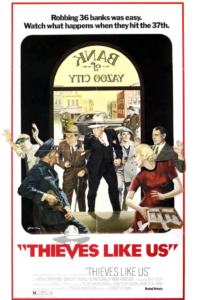
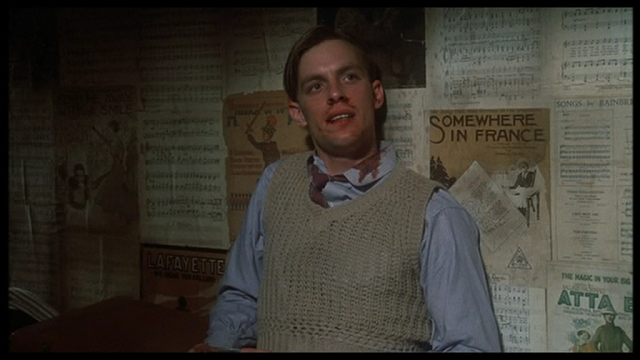
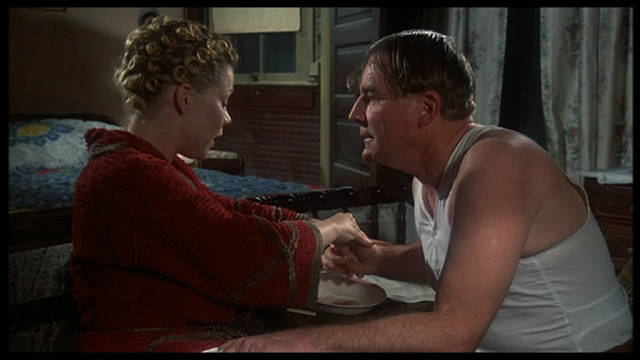
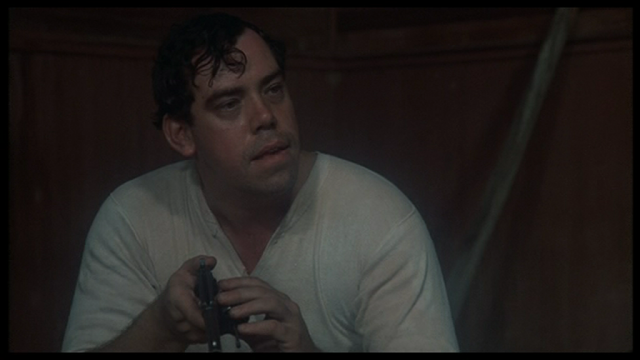
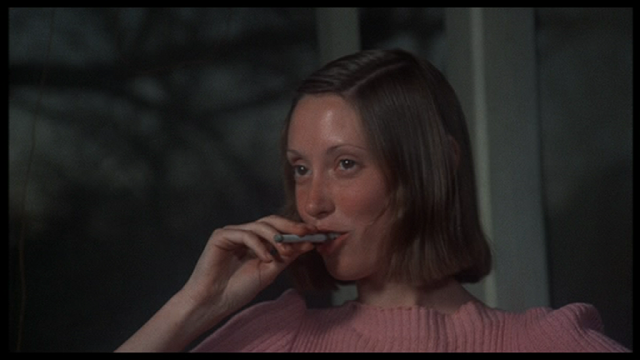

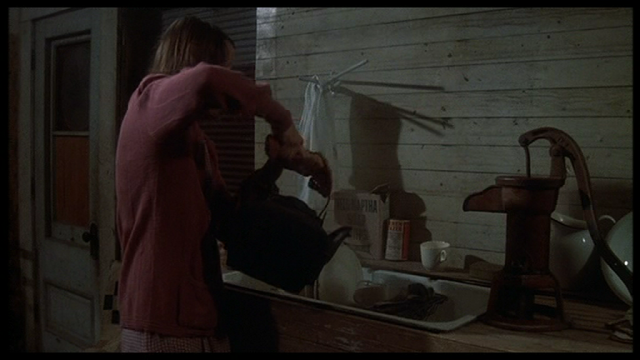
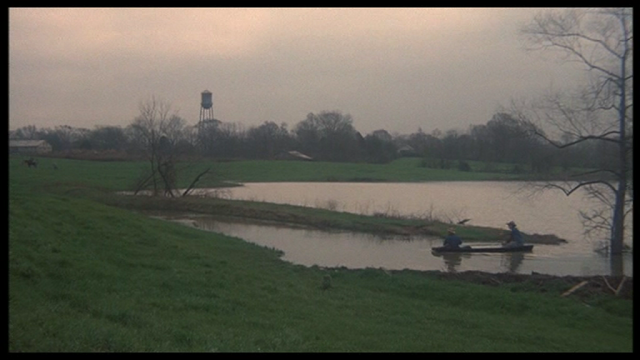

One thought on “Thieves Like Us (1974)”
Not must-see.
I’m taking the opposite view here – as I find this a singularly dull film. In the attempt to de-glamorize bank robbers/killers (as a sort of realistic ‘antidote’ to ‘Bonnie and Clyde’), this polar-opposite approach smacks of authenticity – and therein lies the main problem.
~not in terms of production value, which is excellent in every aspect; but, instead, the characterizations. Although every person depicted is given dialogue that rings true, this film holds the most boring conversations imaginable. The idea was to show ordinary types – just as they are – and, in that, the film ‘succeeds’. But these people are painful to listen to, as they have nothing interesting to say.
~which may very well be the point; one must assume it is. But it sure makes for a soporific. The only reasonable main character (played nicely by Louise Fletcher) is quite on the periphery and has so little to do that her presence is not significantly felt. Duvall’s character may be a nice person but she’s also strapped into ineffectual behavior, making even less of a ripple than Fletcher.
That’s probably why I feel the film finally steps up to the plate in the last 10 minutes – which I don’t think are a “let-down”. From the moment Carradine orchestrates Schuck’s escape, ‘TLU’ is suddenly taut and gripping (thanks largely to editing).
For all of Altman’s brilliance, his films run the gamut in terms of effectiveness. A percentage of them are perfect or near to that; then others, at the other end of his spectrum, are just about unwatchable. Then there are his films like ‘Thieves Like Us’ – which are not great but not so bad that it seems Altman was hardly engaged in the project at all.
The value of ‘TLU’ lies in what it attempts: verisimilitude. That probably works for some in this case, but not others – and I’m in that latter group. The film is largely undone by the people who populate it.